Comic: how to have better arguments about the environment (or anything else)
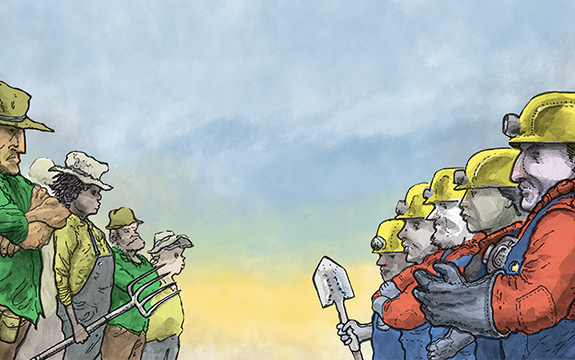
In Summary
- Analysis for The Conversation by Jutta Beher, Spatial Analyst in Conservation and Ecology, University of Melbourne; Darren Fisher, Lecturer, Swinburne University of Technology; Leonie Seabrook, Landscape Ecologist, The University of Queensland; and Winnifred Louis, Professor of Social Psychology, The University of Queensland
From climate change to armed conflict, our world is struggling with urgent global issues. But disagreements about how to solve them can spiral out of control.
The only way to resolve intractable conflicts is to overcome desire to talk to allies more often than opponents. Here, a social psychologist, two ecologists and a cartoonist explain the toolbox of communication we need to resolve difficult issues.
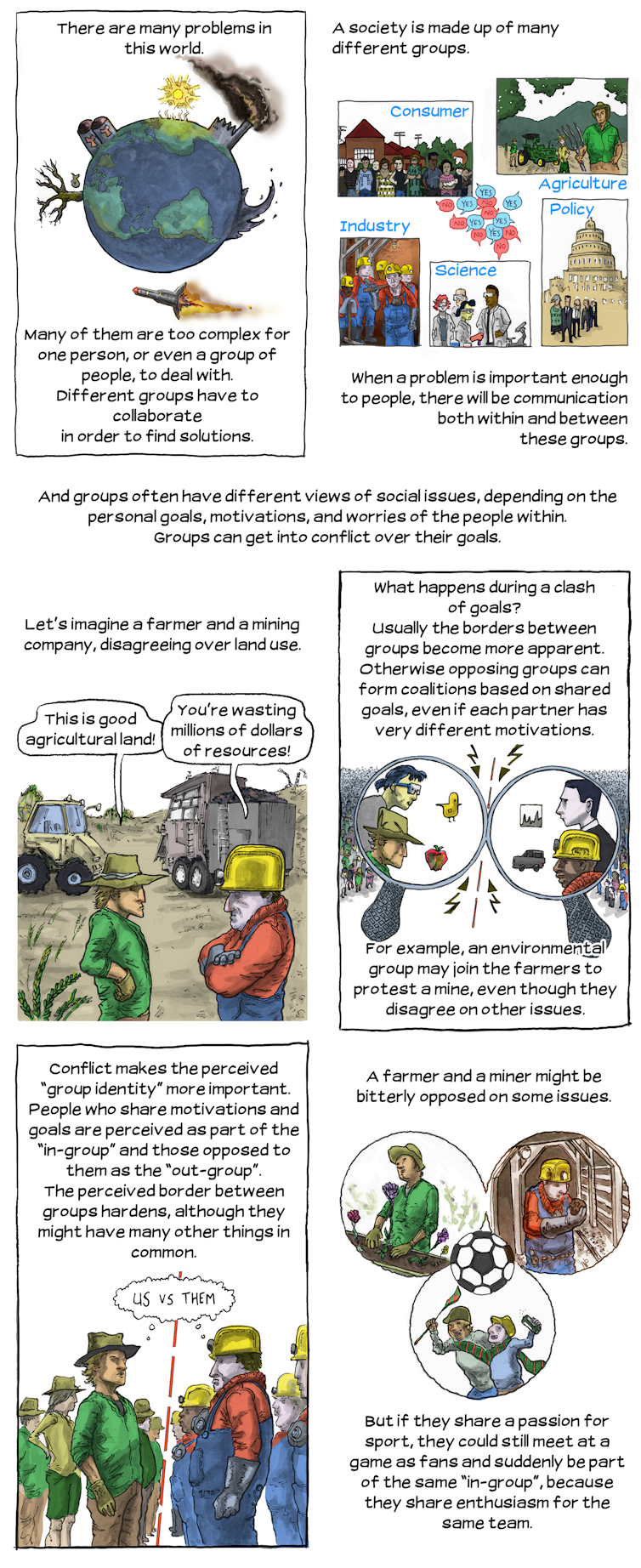 Darren Fisher/Jutta Beher, CC BY-ND
Darren Fisher/Jutta Beher, CC BY-ND
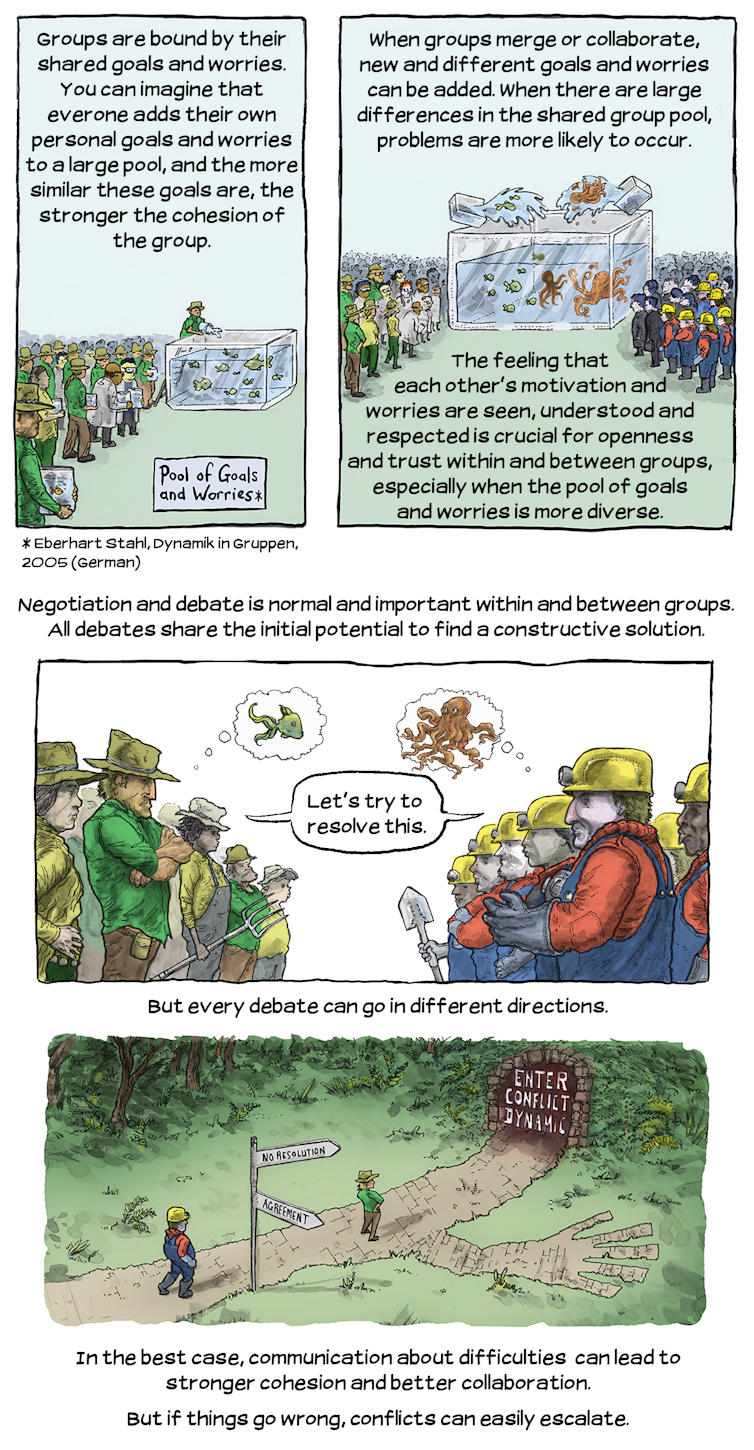 Darren Fisher/Jutta Beher, CC BY-SA
Darren Fisher/Jutta Beher, CC BY-SA
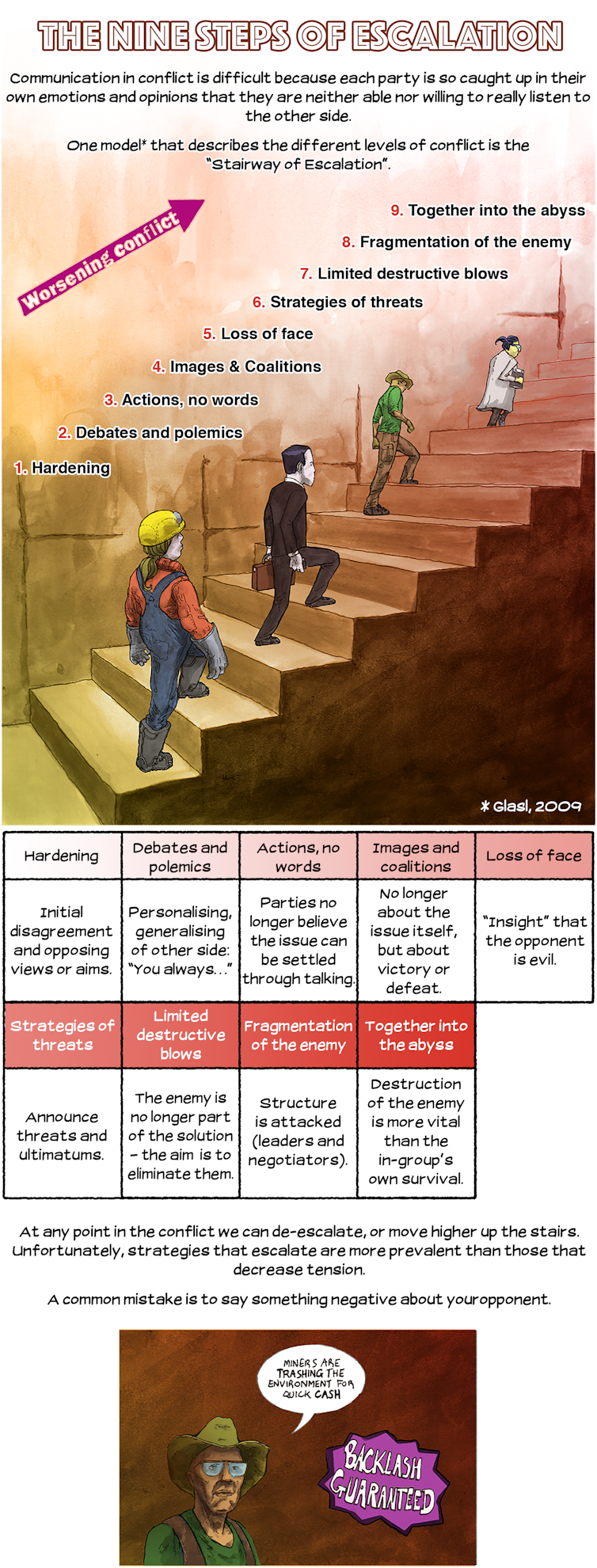 Darren Fisher/Jutta Beher, CC BY-ND
Darren Fisher/Jutta Beher, CC BY-ND
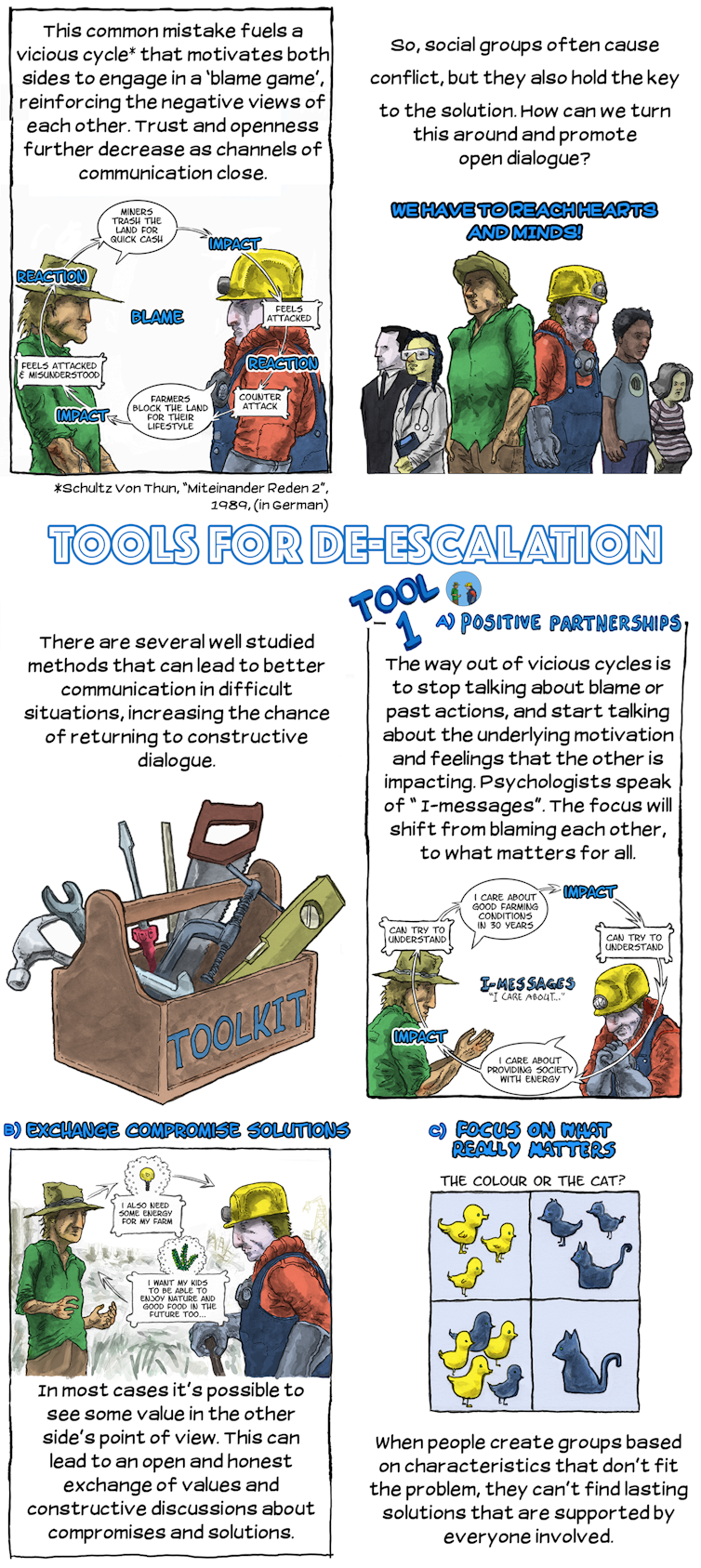 Darren Fisher/Jutta Beher, CC BY-ND
Darren Fisher/Jutta Beher, CC BY-ND 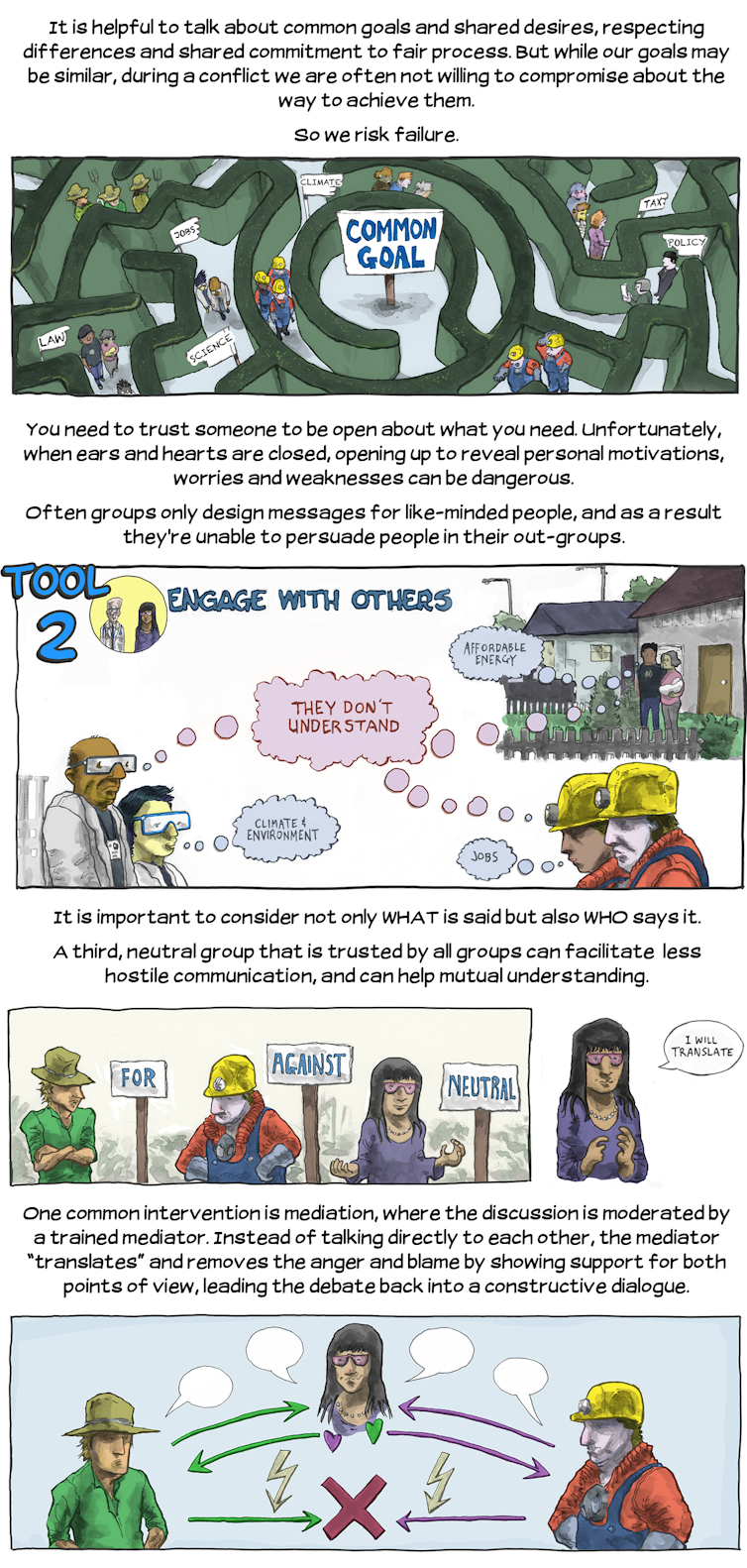 Darren Fisher/Jutta Beher, CC BY-ND
Darren Fisher/Jutta Beher, CC BY-ND 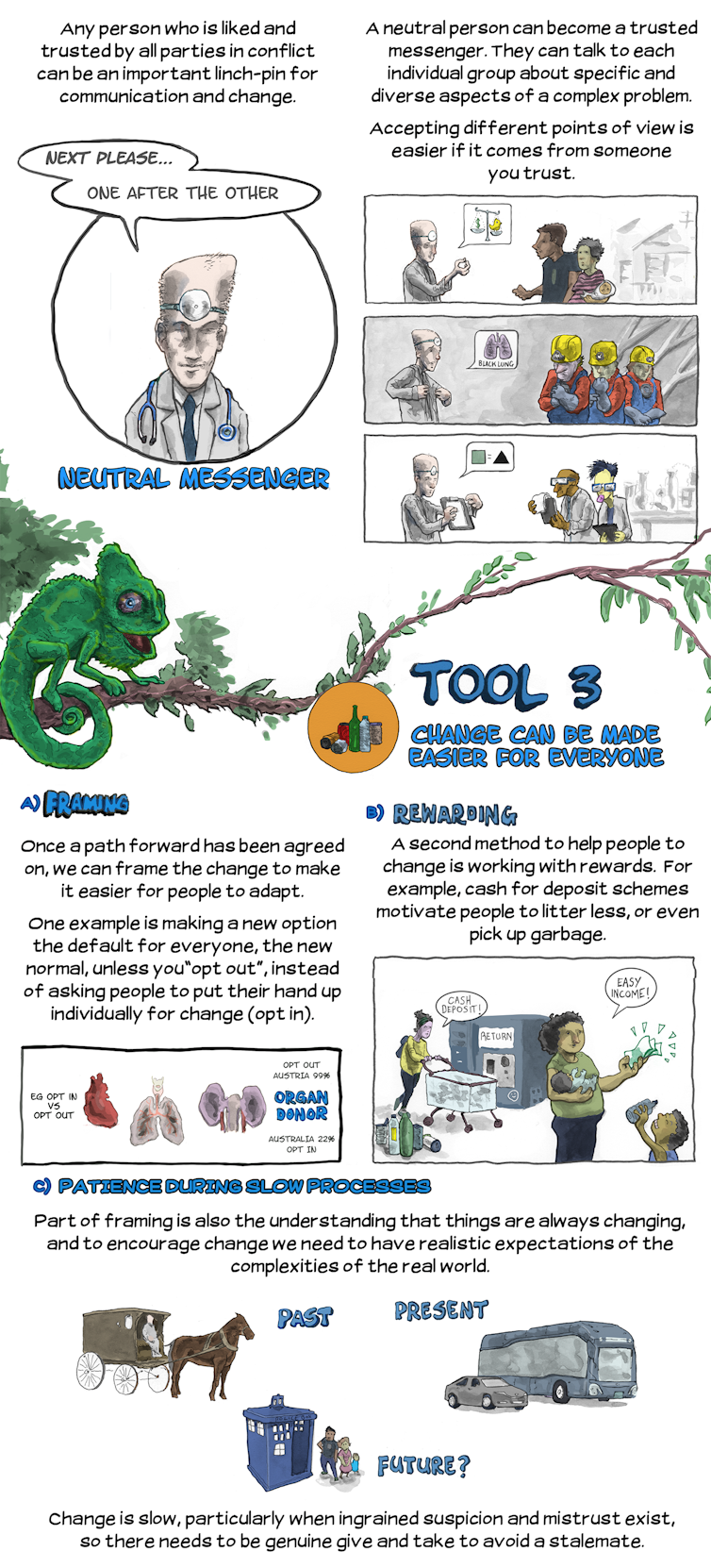 Darren Fisher/Jutta Beher, CC BY-ND
Darren Fisher/Jutta Beher, CC BY-ND 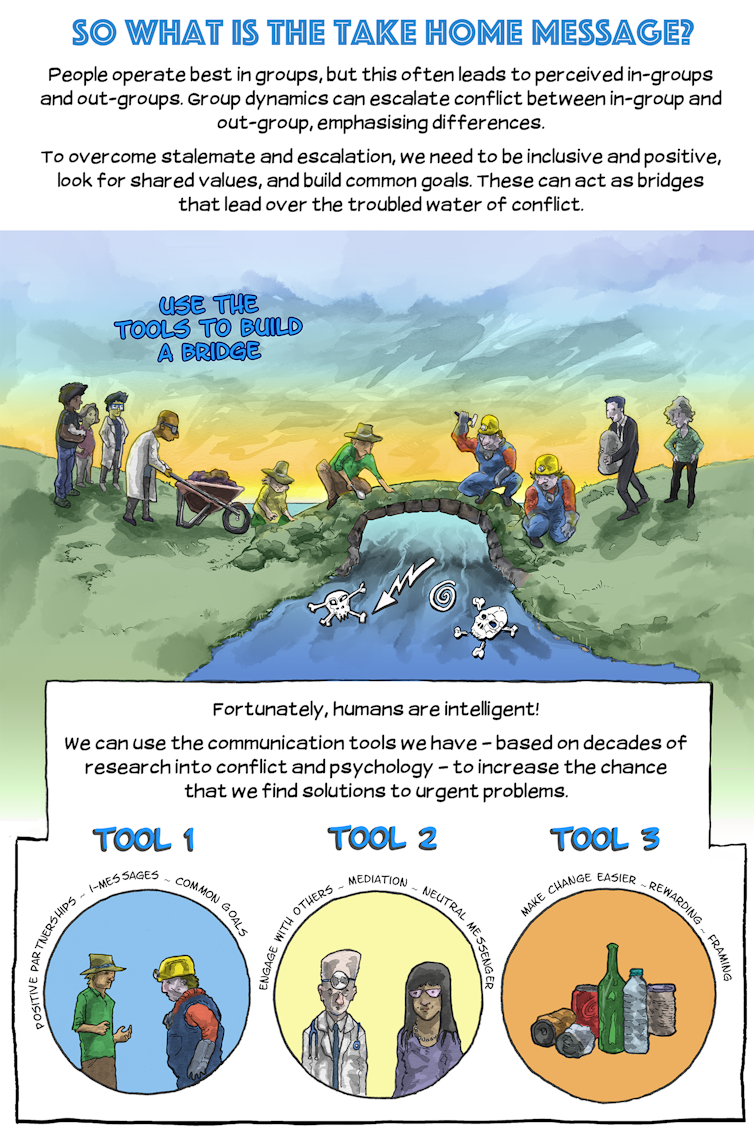 Darren Fisher/Jutta Beher, CC BY-ND
Darren Fisher/Jutta Beher, CC BY-ND
![]() By Jutta Beher, Spatial Analyst in Conservation and Ecology, University of Melbourne; Darren C Fisher, Lecturer, Swinburne University of Technology; Leonie Seabrook, Landscape Ecologist, The University of Queensland, and Winnifred Louis, Professor, Social Psychology, The University of Queensland. This article is republished from The Conversation under a Creative Commons license. Read the original article.
By Jutta Beher, Spatial Analyst in Conservation and Ecology, University of Melbourne; Darren C Fisher, Lecturer, Swinburne University of Technology; Leonie Seabrook, Landscape Ecologist, The University of Queensland, and Winnifred Louis, Professor, Social Psychology, The University of Queensland. This article is republished from The Conversation under a Creative Commons license. Read the original article.

